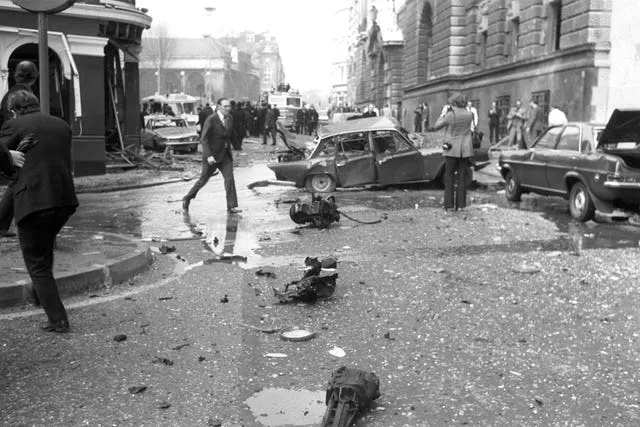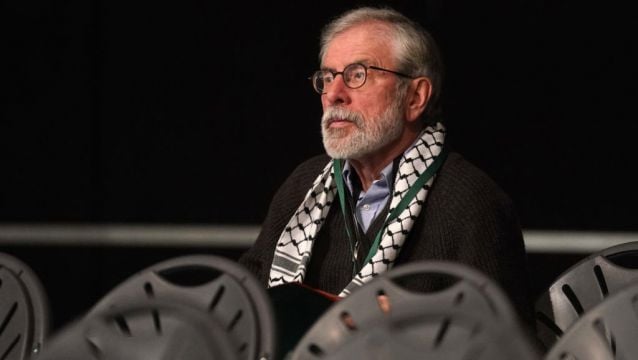Three bombing victims have accused former Sinn Féin president Gerry Adams of seeking to “close down any public hearing in which his membership of the Provisional Irish Republican Army might be evidenced and established”.
John Clark, a victim of the March 1973 Old Bailey bombing in London; Jonathan Ganesh, a victim of the February 1996 London Docklands bombing; and Barry Laycock, victim of the June 1996 Arndale shopping centre bombing in Manchester, have sued Mr Adams and the Provisional IRA and want “nominal” – £1 – damages.
A barrister leading Mr Adams’s legal team told a High Court judge in London on Tuesday that damages claims brought against the Provisional IRA should be struck out.
But a barrister leading the three claimants’ legal team argued Mr Adams’s application to strike out the claims against the Provisional IRA should be dismissed and said a trial should be progressed.
Mr Justice Soole is considering Mr Adams’s application at a High Court hearing in the Royal Courts of Justice complex.
The hearing is due to end on Wednesday and the judge is expected to deliver a ruling in the near future.

Richard Hermer KC, who is leading Mr Adams’s legal team, described the case as “unusual”.
He said the Provisional IRA was an “unincorporated association” which was “incapable in law of being sued”.
Mr Hermer said the conduct of the claims had been “characterised by a significant number of procedural breaches and irregularities”.
He said the timing of the claims was “designed to circumvent pending legislation” which would prohibit such a claim from being brought.
Mr Hermer told the judge nothing he said on behalf of Mr Adams was intended to “deny or minimise” the claimants’ experiences or suffering.
He told the judge in a written case outline: “(Mr Adams) is conscious that the claimants have suffered significantly as a result of bombings in 1973 and 1996 in which they were innocent victims.”
Mr Hermer did not argue entire claims against Mr Adams should be struck out – only “representative” aspects of claims.
Anne Studd KC, who is leading the claimants’ legal team, said each man alleged Mr Adams was “liable to them” both as an “individual given the part he played in the preparation and planning of the attacks”, and as a “representative” of the Provisional IRA.

“The effect of (Mr Adams’s) application is to seek to close down any public hearing in which his membership of the Provisional Irish Republican Army might be evidenced and established,” Ms Studd told Mr Justice Soole, in a written case outline.
“Such a course should not be endorsed by the courts.
“It is anticipated that (Mr Adams) will deny that he was ever a member of the (Provisional IRA), although currently the court should note that it has no evidence upon which to base that conclusion, there being no defence entered and no statement from (Mr Adams) setting out his account.
“This case raises important issues on access to justice in cases where a group of claimants alleged the most heinous wrongdoing by an individual who they allege was a member of an organisation responsible for significant injury through terrorist means.
“If (Mr Adams’s) application succeeds, then its effect would be to give a claimant no cause of action against an individual as a representative of an unincorporated association where the defendant seeks to deny such an association without submitting any evidence, as is the case here.”
Ms Studd told the judge: “There is a public interest in having these issues ventilated. These are issues which have caused the public, and my clients in particular, real concern.”
She said there is “considerable” public interest in letting the three men try to demonstrate that Mr Adams should be “regarded” as a “representative” of the Provisional IRA.







